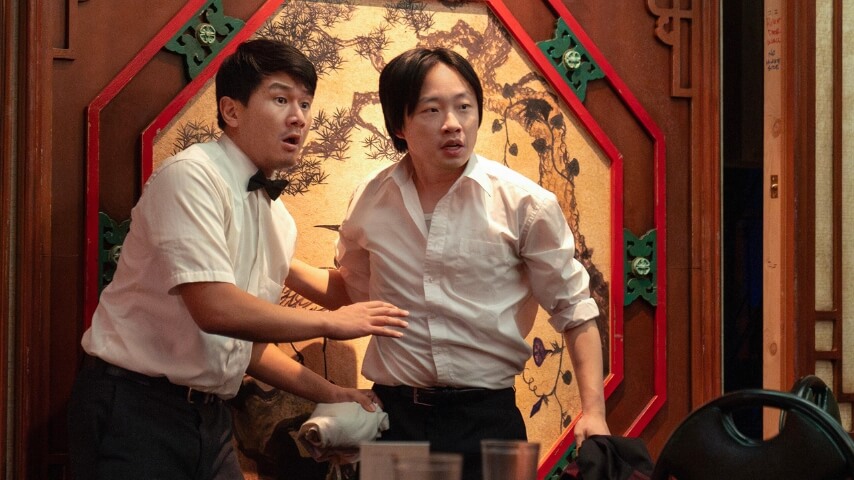Hulu cooks up a campy, charming take on Interior Chinatown
Charles Yu turns his acclaimed novel into a less scathing but equally entertaining TV show.
Photo: Mike Taing/Disney
Weirdly, Charles Yu’s 2020 bestseller is tough to adapt for the screen because of its slick screenplay structure. His novel, Interior Chinatown, chronicles the identity crisis of an Asian man longing to be a Kung Fu star instead of a background actor in a cop show. Only once he’s thrust into the limelight, after losing his wife and kid over this ambition, he understands the true value of his culture and community. Through a subversive style, Yu smartly and empathetically unpacks the challenges of assimilation and skewers Hollywood stereotypes. That crackling wit isn’t fully present in his TV show, but Hulu’s take stands strong on its own merits.
While the series’ narrative differs from the novel, Yu, Interior Chinatown‘s showrunner, translates his unique screenplay formula into something of a visual treat. Purposely whimsical and meta, the lighting, background score, and camera angles shift depending on the POV, with the Taika Waititi-directed premiere setting the tone. The immersive production design further establishes the world of Willis Wu (Jimmy O. Yang)—both the parts that shape his personality and the parts he wants to escape. Based on five of the 10 episodes watched for review, Interior Chinatown converts his struggles into a relatable sentiment: How do you become the hero of your life?
Willis is lethargic and dejected when the show kicks off. His older brother’s disappearance has left his family broken. His grief-stricken parents (played by the underused Tzi Ma and Lily Wu) mostly ignore him while he quietly works at his uncle’s Chinese restaurant as a waiter. Willis bottles up the desire to venture out of his bubble and do something that matters. Maybe if he does, others will notice his existence. He gets his opportunity when he witnesses a potential abduction, which inspires him to dig into his sibling’s vanishing. Through this investigative arc, Willis morphs from being practically invisible to leading the charge.
This doesn’t happen overnight. Willis is torn between sticking to a safe, mundane routine and taking risks that could blow his loved ones’ lives apart. Despite the perils, he learns to take a chance on himself and is done being a sidekick. Yang imbues Willis with naivete, cautious optimism, and determination. It’s so satisfying to watch the character (and the actor) emerge out of the shadows and into the spotlight. Known for his roles in Silicon Valley and Crazy Rich Asians, Yang takes advantage of Interior Chinatown to show much more of his range.

 Keep scrolling for more great stories from A.V. Club.
Keep scrolling for more great stories from A.V. Club.